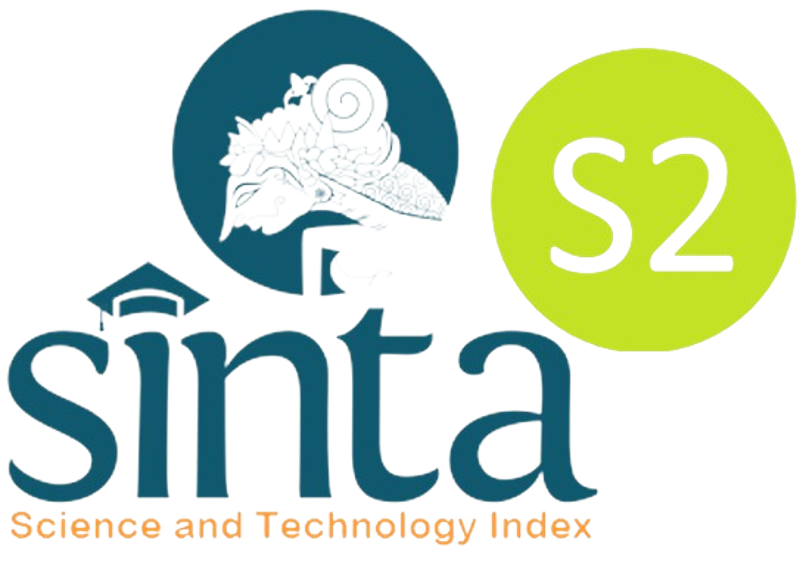The Management of Teachers’ Performances Assessment at the Public Middle School in Banda Aceh
Abstract
Abstract: The Management of Teachers’ Performances Assessment at the Public Middle School in Banda Aceh. Objectives: The objective of this study was to analyze the management of teachers’ performance assessment at junior high schools in Banda Aceh. Methods: The method of this study was descriptive research by applying qualitative approach. The subjects were the principals and teachers. This study used observation, interview and documentation as the technique of data collection.The data analyze was completed by doing the data reduction, data presentation and verification. Findings: The results showed that: (1) The planning of teachers’ performance assessment was organized by the teachers in the beginning of a new year which the function is as the reference for the teacher to accomplish the teaching and learning process; (2) The implementation of teachers’ performance assessment was not implemented as well as possible therefore the class management does not meet the standard of the minimum service of learning; (3) The supporting factors in evaluating teacher’s performance are: supervision activity, the teachers are engaging to the teachers training and workshop (training assessment), reward to the highest result or the score.
Keywords: Education management, teacher performance assessment, public middle school.
Abstrak: Manajemen Penilaian Kinerja Manajemen Guru di SMP Negeri Kota Banda Aceh. Tujuan: Tujuan dari penelitian ini adalah untuk menganalisis manajemen penilaian kinerja guru di sekolah menengah pertama di Banda Aceh. Metode: Metode penelitian ini adalah penelitian deskriptif dengan menerapkan pendekatan kualitatif. Subjek penelitian adalah kepala sekolah dan guru. Penelitian ini menggunakan observasi, wawancara dan dokumentasi sebagai teknik pengumpulan data. Analisis data diselesaikan dengan melakukan reduksi data, penyajian data dan verifikasi. Temuan: Hasil penelitian menunjukkan bahwa: (1) Perencanaan penilaian kinerja guru diselenggarakan oleh guru pada awal tahun baru yang berfungsi sebagai acuan guru dalam menyelesaikan proses belajar mengajar; (2) Pelaksanaan penilaian kinerja guru belum dilaksanakan dengan sebaik-baiknya sehingga pengelolaan kelas belum memenuhi standar pelayanan minimal pembelajaran; (3) Faktor pendukung dalam menilai kinerja guru adalah: kegiatan supervisi, keterlibatan guru dalam pelatihan dan lokakarya guru (penilaian pelatihan), penghargaan atas hasil atau skor tertinggi.
Kata kunci: manajemen pendidikan, penilaian kinerja guru, SMP Negeri.
Full Text:
PDFReferences
Adams, D., Kutty, G. R., &Zabidi, Z. M. (2017). Educational leadership for the 21st Century. International online Journal of educational leadership, 1(1), 1-4.
Bogarín Vega, A., Cerezo Menéndez, R., & Romero, C. (2018). Discovering learning processes using inductive miner: A case study with learning management systems (LMSs). Psicothema.
Bruno, A., &Dell’Aversana, G. (2018). Reflective practicum in higher education: the influence of the learning environment on the quality of learning. Assessment & Evaluation in Higher Education, 43(3), 345-358.
Chao, P. C. (2018). Using self-determination of senior college students with disabilities to predict their quality of life one year after graduation. European Journal of Educational Research, 7(1), 1-8.
Chen, C., Elliot, A. J., & Sheldon, K. M. (2019). Psychological need support as a predictor of intrinsic and external motivation: the mediational role of achievement goals. Educational Psychology, 39(8), 1090-1113.
Connolly, M., James, C., &Fertig, M. (2019). The difference between educational management and educational leadership and the importance of educational responsibility. Educational Management Administration & Leadership, 47(4), 504-519.
Cruz, F. J. F., Gálvez, I. E., &Santaolalla, R. C. (2016). Impact of quality management systems on teaching-learning processes. Quality Assurance in Education.
Dennison, W. F., &Shenton, K. (2018). Challenges in educational management:
Principles into practice. Routledge.
Espinoza, Ó., González, L. E., McGinn, N., Castillo, D., & Sandoval, L. (2019). Factors that affect post-graduation satisfaction of Chilean university students. Studies in Higher Education, 44(6), 1023-1038.
Hallinger, P. (2018). Surfacing a hidden literature: A systematic review of research on educational leadership and management in Africa. Educational Management Administration & Leadership, 46(3), 362-384.
Han, F., & Ellis, R. A. (2019). Identifying consistent patterns of quality learning discussions in blended learning. The Internet and Higher Education, 40, 12-19.
Kotova, E. E., &Pisarev, I. A. (2016, May). Active internet technologies implementation in the students learning process support system. In 2016 XIX IEEE International Conference on Soft Computing and Measurements (SCM) (pp. 302-304). IEEE.
Kraft, M. A. (2019). Teacher effects on complex cognitive skills and social-emotional competencies. Journal of Human Resources, 54(1), 1-36.
Lauermann, F., &König, J. (2016). Teachers’ professional competence and wellbeing: Understanding the links between general pedagogical knowledge, self-efficacy and burnout. Learning and Instruction, 45, 9-19.
Leutner, D., Fleischer, J., Grünkorn, J., &Klieme, E. (2017). Competence Assessment in Education. Research, models and instruments. Hamburg: Springer.
Pop, E. I., Negru-Subtirica, O., Crocetti, E., Opre, A., &Meeus, W. (2016). On the interplay between academic achievement and educational identity: A longitudinal study. Journal of Adolescence, 47, 135-144.
Saitis, C., &Saiti, A. (2018). Initiation of educators into educational management secrets. Basel, Switzerland: Springer.
Siraj, S., &Milfayetty, S. (2017, October). Principal Leadership Contribution to Development Characteristics of Competence Professional Teacher. In 2nd Annual International Seminar on Transformative Education and Educational Leadership (AISTEEL 2017). Atlantis Press.
Yang, X., Kaiser, G., König, J., &Blömeke, S. (2018). Measuring Chinese teacher professional competence: adapting and validating a German framework in China. Journal of Curriculum Studies, 50(5), 638-653.
Zlatkin-Troitschanskaia, O., Pant, H. A., Lautenbach, C., Molerov, D., Toepper, M., &Brückner, S. (2017). Modeling and measuring competencies in higher education. Springer Fachmedien Wiesbaden.
Refbacks
- There are currently no refbacks.
Copyright (c) 2020 Jurnal Pendidikan Progresif

This work is licensed under a Creative Commons Attribution-ShareAlike 4.0 International License.
View My Stats

The copyright is reserved to The Jurnal Pendidikan Progresif that is licensed under a Creative Commons Attribution-ShareAlike 4.0 International License.





